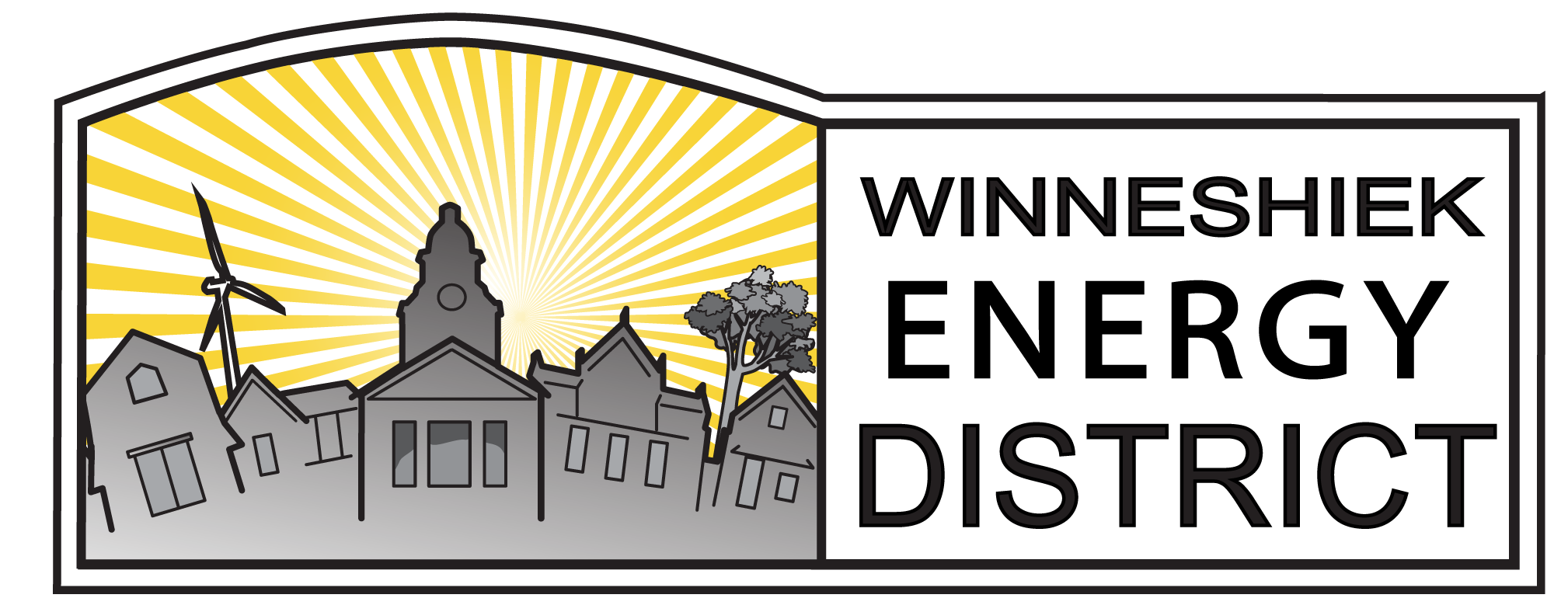Efficiency First, Solar Second
Before considering solar, make your home as efficient as possible. It doesn’t make much sense to install an 8 kW system for $20,000 if you could first reduce your electrical usage by investing $4,000 in an energy saving upgrade, and then only need to build a 5 kW system for $12,500.
The Cost of Solar
The cost of solar has decreased dramatically in recent years. In 2014, costs were just over $4/W installed for a 5KW system, or $20,000 installed. We also have a 15% Iowa tax credit now on top of the federal 30%.
With higher electricity costs (which will continue to rise), many if not most of Winneshiek County households, farms, and businesses could see simple payback times under 10 years. Quality panels can easily produce energy for 25 years or more.
For comparison, in 2008 a residential 5 kW (kilowatt) system probably cost $8/W installed or $40,000. A 30% federal tax credit could help bring this down to $32K, and with electricity at about 10 cents/kWh, simple payback was roughly 50 years, give or take.
Solar energy is an investment, but in most cases a good one. And don’t forget: clean energy is also an investment in a better future.
Financing
Solar photovoltaics is still a major investment – but it’s also a sound investment in a solid asset with close to guaranteed return. As such, solar is very often eligible for financing on good terms. Decorah Bank and Trust (a sponsor of the Energy District) is currently offering energy efficiency/renewable energy loans specifically for projects such as this.
Choose Your Site
For on-site solar PV, you need a relatively shade-free, south facing location, whether “ground mount” or “roof mount”. A good solar site assessment and consultation by the Energy District will review all this and much more.
The Beacon assessors site can also provide you with good aerial imagery, as can sites such as Bing and Google Maps. Google’s Project Sunroof was created for this very reason, but is not yet available in Northeast Iowa.
A solar PV array on your building or property is somewhat of a fixed asset — it can be moved but is best left in place for quite some time. This means that if you sell, you’ll want that investment reflected in the valuation of your property. This is growing area of interest and learning within the real estate community, and if you plan to sell in the near future you may want to have some discussions with appraisers, realtors, and others.
Choosing a Solar Contractor
The Future: Community Owned Solar
Currently the only solar PV option for most of us is to pay for and own our system, but we’re working toward changing that. A community solar field could potentially allow us all to buy shares or actual generating capacity, have the generation credited to our utility bill, but also have benefits such as economy of scale, convenience of a common location, transferability of the investment, and more.
Another model would allow you to contract with a solar business that could build AND OWN a PV system at your location, so instead of you investing in a major system, you just purchase the power generated the same as you purchase power from a utility. Neither of these options are available through Iowa utilities at the moment but we’re hoping that will change.
Outside Resources
- The Department of Energy has some very good articles. Start with Planning a Home Solar Electric System and follow the links for more
- Florida Solar Energy Center
- Solar Investment Tax Credit

